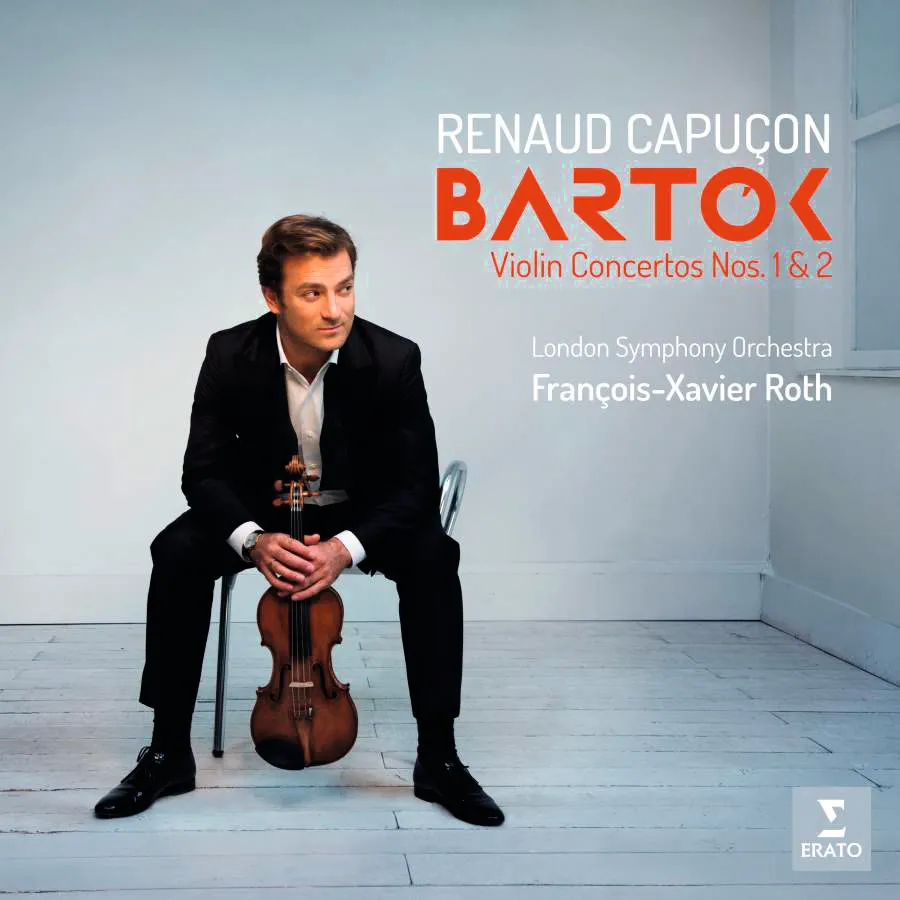
Bartók Violin Concertos Nos 1 & 2 Violin Concertos Nos 1 & 2 Renaud Capuçon (violin); London Symphony Orchestra/François-Xavier Roth Erato 9029570807 60:07 mins
Bartók composed his First Violin Concerto during a period when he was infatuated with a young violinist called Stefi Geyer. The musical motif he associated with her – a slowly ascending arpeggio in thirds – appears in several of his works of the time, and it’s quoted right at the start of the concerto’s long unaccompanied violin melody. That first movement itself was essentially a love letter to Geyer, while the second attempted to capture the more capricious side of her nature. Bartók sent Geyer the completed concerto (he seems to have planned a third movement, but never composed it), but it was only after her death in 1956 that it was first performed. Meanwhile, Bartók had salvaged the first movement by transferring it to his orchestral Two Portraits, Op. 5, but he failed to carry out a similar service for the second movement.
The early concerto’s lyrical opening movement finds Renaud Capuçon in his element, producing playing of great warmth and intimacy, and the same is largely true of his account of the slow movement from the much more familiar Violin Concerto No. 2. Where Capuçon is occasionally less successful is in conveying the rhythmic incisiveness of the music’s more forthright moments, and in particular the passages Bartók wanted played ruvido (‘roughly’): the third variation in the late concerto’s slow movement, for instance, and some moments in its dazzling finale. But it’s a small point, and Capuçon negotiates Bartók’s very tricky writing with admirable virtuosity throughout. He’s sympathetically accompanied by François-Xavier Roth and the London Symphony Orchestra.
Misha Donat